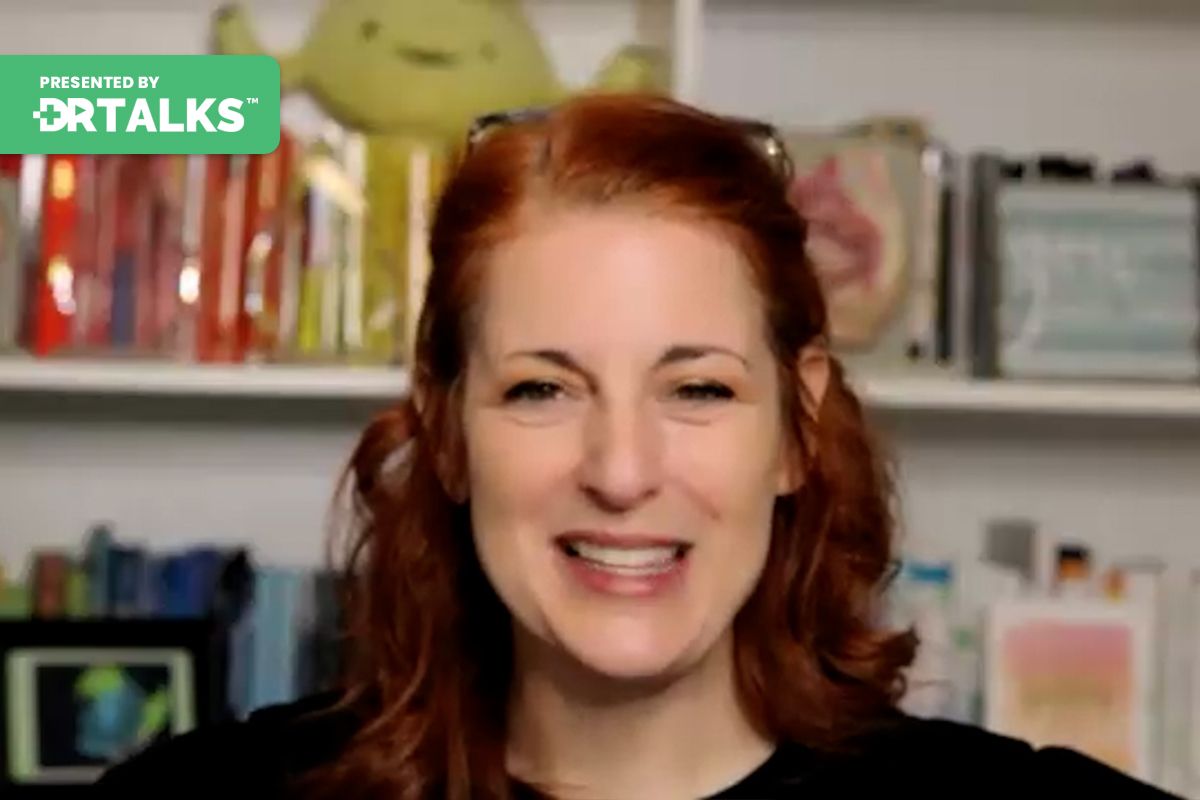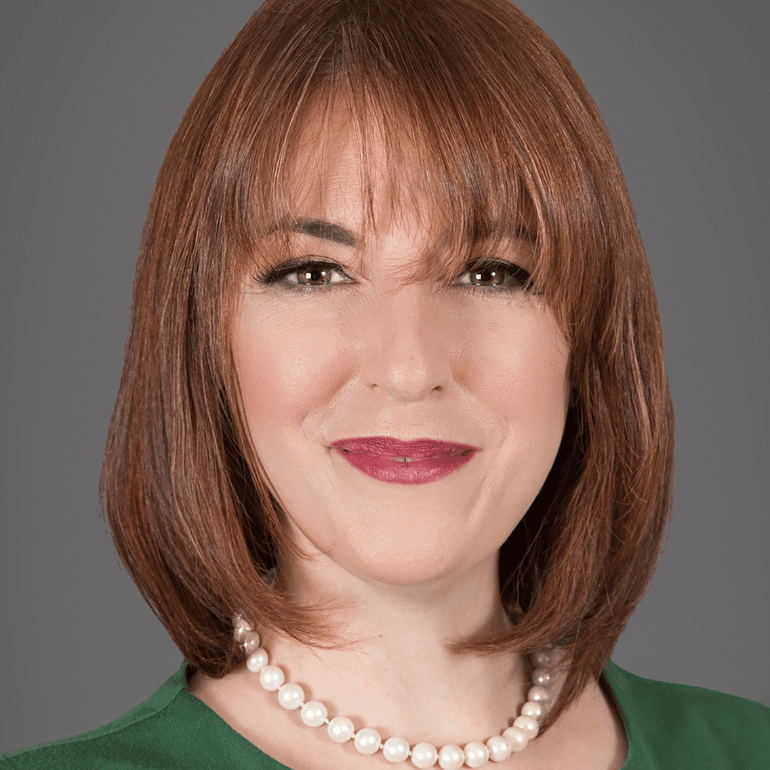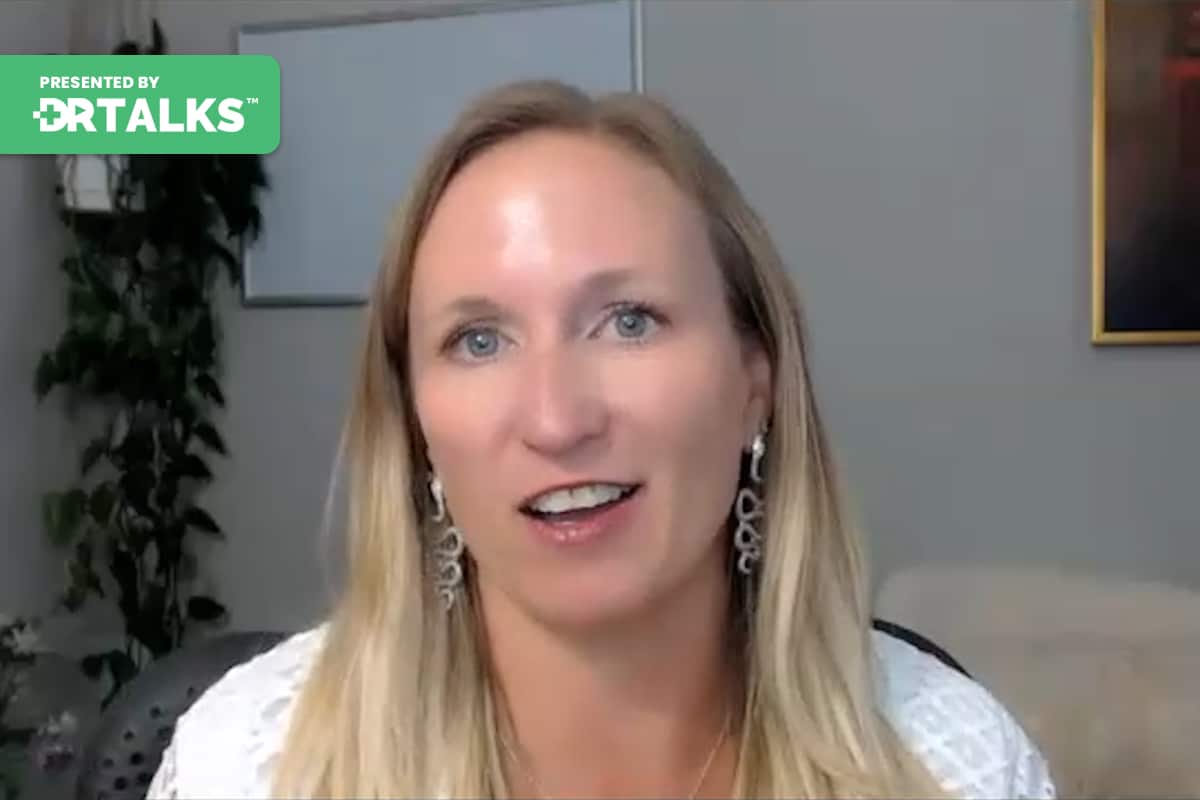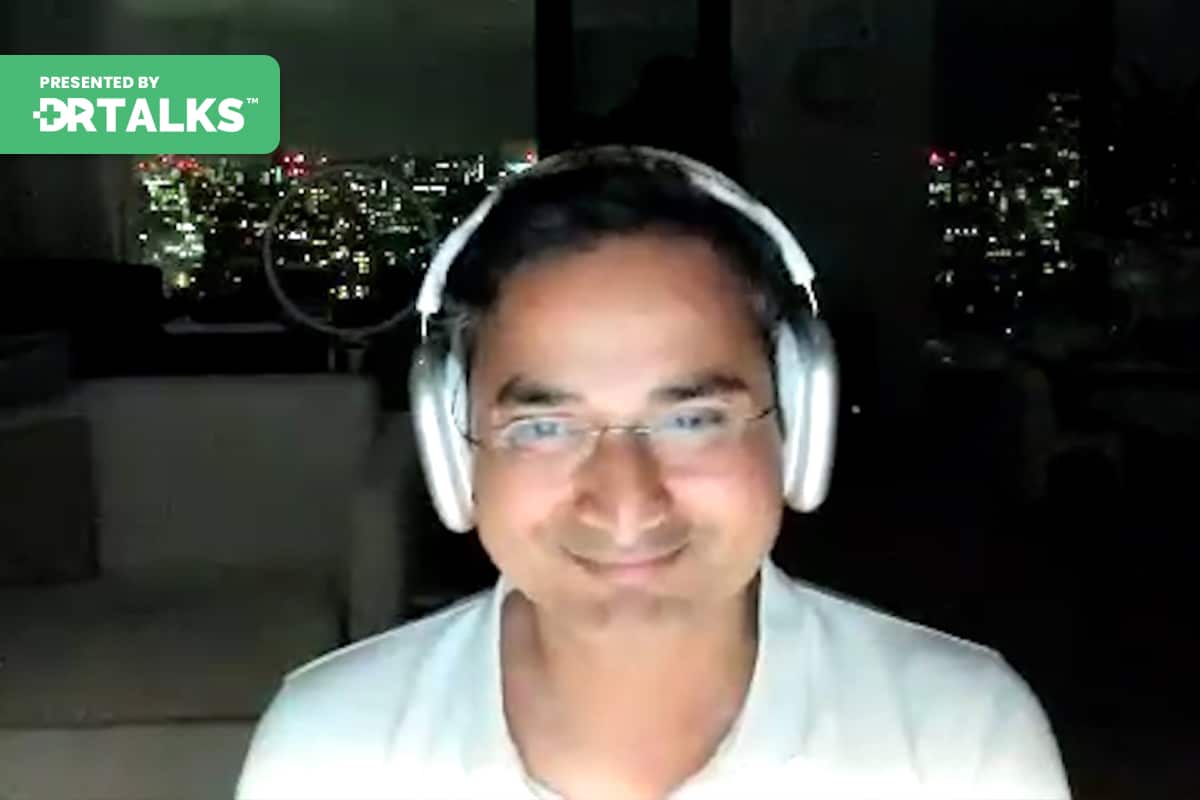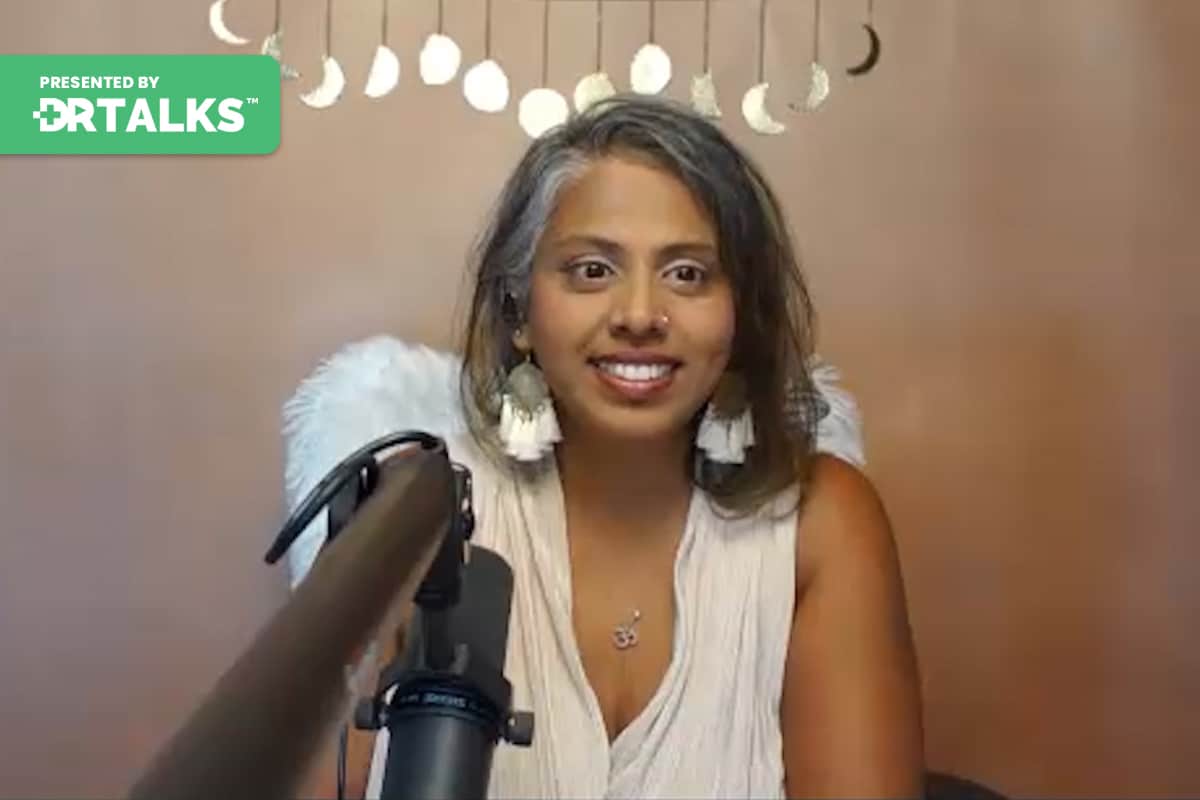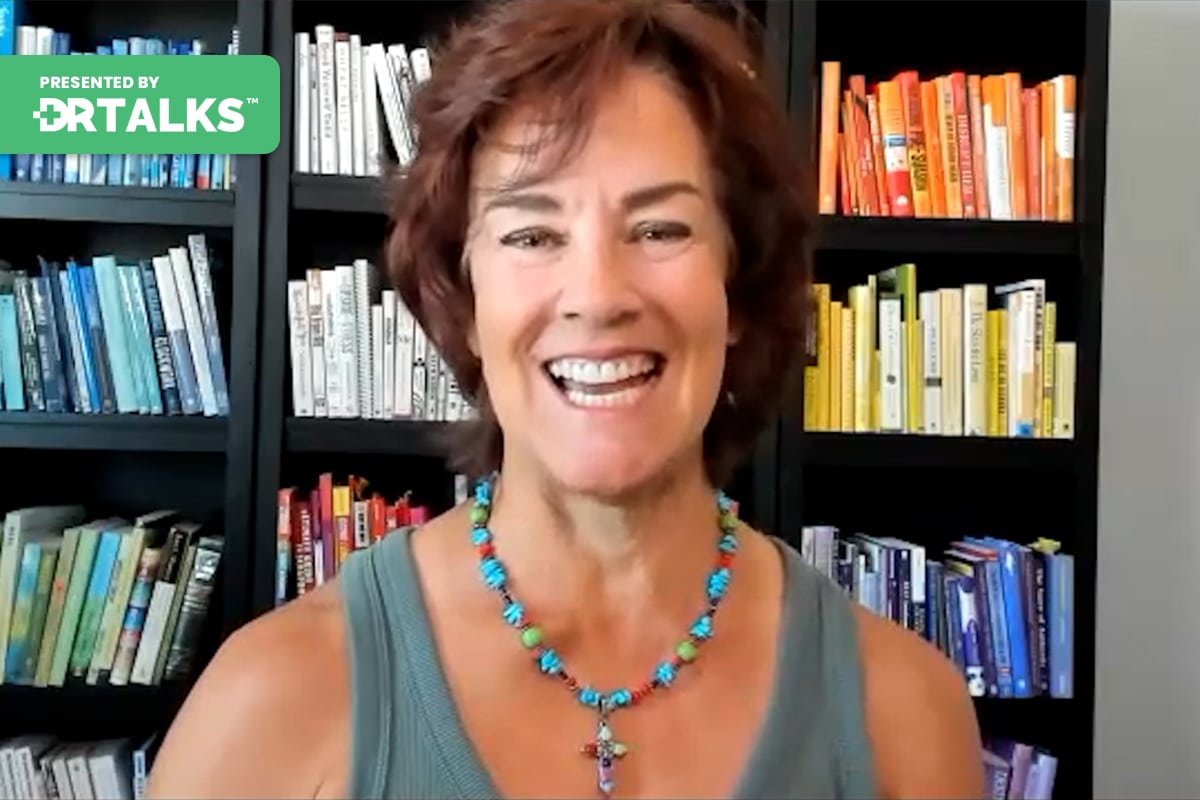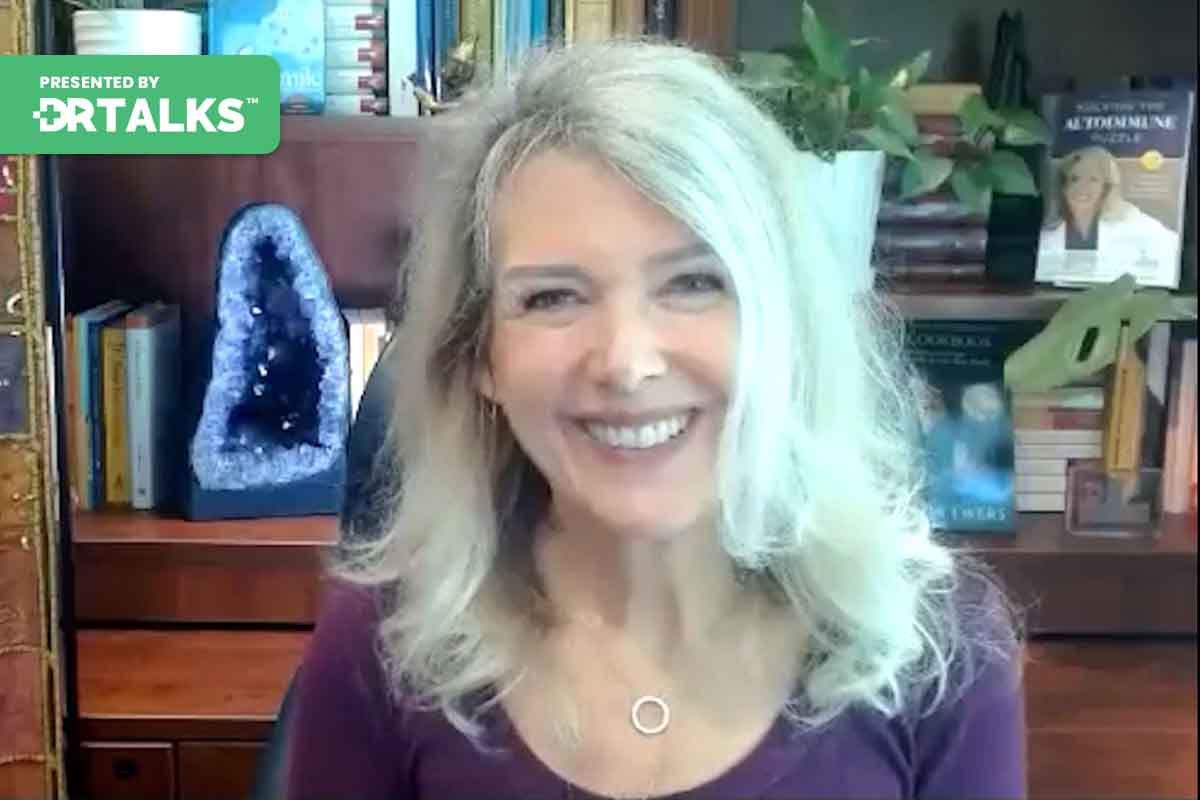They tend to look at the body as a whole and so we don’t go, wait a minute, your foot is hurting go to a podiatrist. We go, wait a minute. What could be possibly causing that foot to be hurting? So if you remember the Chronic Pain Lecture, one of the things I forgot to mention in the Chronic Pain Lecture was that when we focus on symptoms this is sometimes why things don’t get better. Now remember, in chronic pain, you get that upregulation of nerves, and now the brain and the spine become upregulated with nerve fibers. So if your foot is bothering you and you’re having pain and you’ve done everything you could possibly do to your foot. And now all of a sudden the doctors go, well, we don’t know what’s wrong with your foot. Let’s just chop your foot off. That doesn’t get rid of the pain because you still have those upregulated receptors in the spinal cord in the brain. And so we want to keep the brain around. Right. So this is why amputations for pain don’t work.
And this is why in women’s health in particular too often over the years, you know. Women, especially women with chronic pain, they go, we don’t know what’s causing it, so let’s just take out your uterus. And hysterectomy is for chronic pain doesn’t work because that’s not number one, not the source. And even if it was the initial source, if it’s a chronic condition now the upregulated receptors in the brain that are affecting things. So when I look at conditions like interstitial cystitis, this becomes a little more tricky because it is a chronic pain condition but I also look at it like another condition is called chronic regional pain syndrome.
So chronic regional pain syndrome is a condition where you have an injury or some kind of trauma to the spinal cord, let’s say. And now the pain is where the spinal court is. It’s all the effects are downstream of the spinal cord. So we know chronic pain syndrome, people will get pain in the foot or a leg and they’ll get swelling of that foot in their leg. They get inflammation of that foot in the leg. And so that’s what I’m here to tell you now interstitial cystitis has not been classified as a chronic regional pain syndrome, but it is because it fits every checkbox. We get swelling of the bladder. We get inflammation of the bladder, we get increased mast cells in the bladder. So the bladder is not the problem. The bladder is where the body cries for help. It’s the same thing we see with Vulvodynia and other chronic pain syndromes where the pain being sensed is not the problem, it’s the body. It’s where the body can talk to us. So now we’ve got to go take it back and take a look at things.
So there is something called the Interstitial Cystitis Diet. And we know that foods that are very high in acids such as coffee, tea, tomatoes, and sodas which are carbonated things that are very acidic will aggravate the bladder. And it used to be thought that, oh, well, it must be the urine. And we know that in Interstitial Cystitis, what ends up happening is a protective lining of the bladder gets affected. It’s almost like a leaky bladder. We talk about leaky gut with the gut being affected and things leaking through. Well, you can get this leaky bladder with the protective lining. The bladder gets affected. You get low cracks in the bladder. It’s kind of like if you had a paper cut in your finger. If you got a paper cut in your finger and I poured salt water on it. It would hurt a lot if you had a normal finger and I poured saltwater. It wouldn’t bother you. So that’s what interstitial cystitis is like like having multiple little paper cuts in the bladder.
So now when the urine comes in it’s really irritating to the lining of the bladder. And yes, things that make the urine more acidic can be more irritating. But it’s a little bit more than that. I find for the majority of my interstitial cystitis patients. And once again, it is a diagnosis that when you have it. Many people think, yeah, I have a diagnosis, that means there can be a cure. Now each case is different. It’s each case is, isn’t that correct? But we can’t have interstitial cystitis. We do this, this, and this, and you get better. No. Because in every case what caused it to begin with is different. And we have to kind of go through that maze and puzzle figuring it out. But I would say for the majority of people, it has to do with a leaky gut, an inflammatory gut. And this comes from problems with the microbiome of the gut, bacteria of the gut being thrown off.
And we know that certain bacteria like lactobacillus are great at decreasing pain. And if your body doesn’t have enough of certain bacteria we’re more likely to sense pain because our neuro receptors are made in our gut. Our happy hormones are made in our gut and so all of these things tend to be lower. This is why we have more problems with depression and anxiety with a lot of these cases of interstitial cystitis. You know, a lot of doctors. Believe that the reason people have interstitial cystitis is because they have an anxious personality. They’re just a person who’s high-strung and that’s why they have this condition. No, I would say it’s the opposite. That because their gut is off, they don’t have the hormones to decrease anxiety and depression. That predisposes them to more pain conditions. And then the pain condition itself can then have that reverse effect on the gut, worsening, leaky gut.
So where I like to look first in interstitial cystitis patients is the gut. I can’t tell you the number of patients we’ve been able to simply reverse interstitial cystitis by fixing their leaky gut. This is something you can look at my programs, we have some programming programs to teach people how to do this for themselves. Also we will we have programs where this is something that I can do for you depending on where you live in the United States or come on, visit us here in New Jersey. But this is something that can easily be done. Things that people can do for themselves for interstitial cystitis without s doctor is that that’s the problem is not everybody specializes in this. Not every urologist, not every urogynecologist. But the first thing is to clean up the diet and get rid of things that tend to be inflammatory. The highest inflammatory foods tend to be gluten. Those are your wheat products, sugars, and dairy in some people but I always just say, well, if you want a blanket idea let’s just get rid of the dairy and processed foods.
My criteria for what you should be eating is if it walks, swims, grows, or flies that’s a whole food. So Twinkies and Doritos don’t grow on trees. So we get those out of the diet. So we also want to stay away from artificial sweeteners. I will tell you, I. Myself had interstitial cystitis because years back I was on intravenous fluids. And here I am telling people, to drink fluids, drink fluids. And I admittedly hate the taste of water. So I decided to get some Crystal Lake flavor in my water and make it a little bit easier to drink. And next thing you know, I was like, Oh, I think I have a bladder infection. Well, I can treat myself. Tested it. No bladder infection. Tested it. No bladder infection. Finally was getting worse and worse and worse. Finally, I couldn’t do my own system scope where let me look in the bladder with a little tiny camera. So I went and got it done and lo and behold had interstitial cystitis.
I had to look back on it. What are the things I have been eating. Usually, another thing is if you look at, if you keep a diet diary and manage it with your symptoms, you can start picking out which foods may be irritating you because usually within 48 to 24 hours of eating something, you can get symptoms. Now there are going to be some. More lower-grade food sensitivities, that might not show up on that but doing an elimination diet can help. Cutting out things that are very acidic. Like we said too, coffee, tea, and unfortunately, coffee decaf or regular. You can do herbal teas but I would stay away from regular black tea. Citrus fruits, tomatoes, sodas. Those are things you want to try to cut out. So going to an elimination diet and keeping a food diary. Figuring out what things bother you, that’s the easy way to do it without fancy testing.
The other thing is working on relaxation techniques. Meditation is my favorite because not only does meditation help with the hormones, stress hormones which help. We can decrease stress. hormones, we can promote healing but there’s also been great studies showing that the microbiome can be fixed through meditation. In fact, Tibetan monks have the best microbiomes in the world, and it’s not just from what they’re eating, it’s from what they’ve done a study. It’s directly related to the amount of meditation that they’re doing and it doesn’t mean you have to meditate for hours and hours on end just by five, ten-minute sleep. Getting more sleep. So here’s the thing. It’s tough when you have a bladder that’s waking you up at night. But whatever. You can do to to get some sleep. Because we heal when we’re sleeping.
Now, when it comes to like very quick things that people can use for. Calm and irritated Bladder. Sometimes, using a product like Prelief, which is a bladder antacid that can just kind of help take off the sting that we get with the urine. There are medications or over-the-counter products like Azel, which just numb the bladder. But these are just going to be things that are going to cover things up, something like baking soda and water. So we do a quarter of a tablespoon of baking soda and eight ounces of water that can help when you don’t want to do that more than once a day and you want to do that under doctors’ guidance. But that can just temporarily calm the bladder. But the point of interstitial status is for us to really get to what is the underlying cause and can we reverse it.
So other things we need to look, orthopedics. A lot of times people get so focused on the bladder we forget to look at it. Are there problems with nerve compressions? In the neck, in the back. In the hips? Is there something else out of alignment or compressing? What is adding to this downstream inflammation in the bladder? So there are a number of causes, but there is hope. There are so many different treatments and what I recommend is that if we can get interstitial cystitis under control, which I’ve seen many, many times, people go on and live amazing lives and sometimes it comes back but the majority of times we’re able to get rid of it for good. And so what you want to do is look at places like voicesforpfd.org. That’s where you can find a euro gynecologist and you want to specifically make sure you find one that’s well-versed in interstitial cystitis. Or if you’re a male looking for a urologist who is well-versed in interstitial cystitis, other resources would be going.
To a. Integrative or functional medicine doctor who understands the role of leaky gut in inflammation or the other things here. Here are some other things that we forget that are triggers for interstitial cystitis, Epstein-Barr reactivation, and Epstein-Barr mold. So if you’re living in a house that’s full of mold, I’ve seen seasonal allergies be triggers for people of interstitial cystitis. Environmental toxins. So these are other areas which. Can be causing triggering pain and inflammation in the body. And so just think of interstitial cystitis as just the way that your body’s trying to get your attention. And there is an answer in there is a way to get better. It just takes some time. And the bigger, and better team you have, the more eyes looking. On it, more likely you’re going to get to where you need to be. So make sure you stick around. This has been Dr. Betsy Greenleaf talking a little bit about interstitials and status. Stick around because we’ve got more great sessions coming up.

